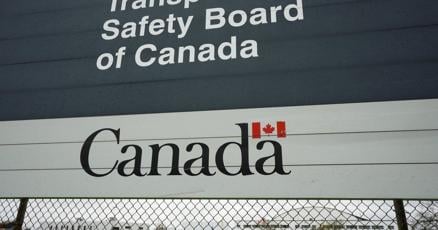In a jarring incident that shook Whitehorse’s aviation community yesterday afternoon, a helicopter conducting a training exercise crashed with two individuals onboard, prompting an immediate emergency response and raising questions about flight training safety protocols in Canada’s North.
The incident occurred shortly after 3:30 pm local time when the aircraft, identified as a Robinson R44 helicopter, went down near the Erik Nielsen Whitehorse International Airport. According to witnesses, the helicopter appeared to experience difficulties during what airport officials later confirmed was a routine training maneuver.
“We heard an unusual sound—like the engine was struggling—and then saw the helicopter descend rapidly,” said James Morrison, who was working at a nearby facility when the crash occurred. “Emergency vehicles were on the scene within minutes.”
The Transportation Safety Board of Canada has deployed investigators to examine the wreckage and determine what led to the aircraft’s failure. This marks the third helicopter incident in the Yukon this year, raising concerns about whether extreme northern conditions may be playing a factor in these occurrences.
Both occupants of the helicopter—an instructor and trainee pilot—were transported to Whitehorse General Hospital. While authorities have not released their identities, hospital spokesperson Andrea Bremner confirmed that both individuals are in stable condition with non-life-threatening injuries.
“Thankfully, initial assessments suggest both individuals will recover fully, though they remain under medical supervision,” Bremner stated during a brief press conference.
The helicopter was operated by Northern Sky Aviation, a flight training school that has served the Yukon for over fifteen years. The company has temporarily suspended all training operations pending the investigation’s findings.
“Safety is our absolute priority,” said Robert Williamson, Northern Sky Aviation’s Chief Operating Officer. “We are cooperating fully with investigators and conducting our own internal review of all aircraft maintenance records and training procedures.”
The Robinson R44, widely used for training purposes across Canada, has generally maintained a solid safety record, though experts note that pilot training exercises inherently carry elevated risks regardless of aircraft type.
Transport Canada officials have arrived in Whitehorse to join the investigation, focusing particularly on maintenance records and whether weather conditions—which included moderate wind gusts and scattered cloud coverage at the time of the incident—may have been contributing factors.
“We’re examining everything from mechanical systems to environmental factors,” explained TSB investigator Claudia Reynolds. “Our preliminary findings suggest this wasn’t a simple pilot error situation, but rather a combination of factors that led to the crash.”
The incident has sparked renewed discussion about helicopter training regulations in Canada’s northern territories, where pilots must navigate challenging terrain and rapidly changing weather conditions that can test even experienced aviators.
As Whitehorse’s tight-knit aviation community awaits answers, the crash serves as a sobering reminder of the inherent risks in flight training. With northern communities depending heavily on air transportation, particularly helicopter services for remote access, ensuring rigorous safety standards remains paramount.
As this investigation unfolds over the coming weeks, the fundamental question remains: Are current training protocols sufficiently adapted to the unique challenges of northern aviation, or does this incident highlight the need for region-specific safety enhancements in Canada’s helicopter training programs?










